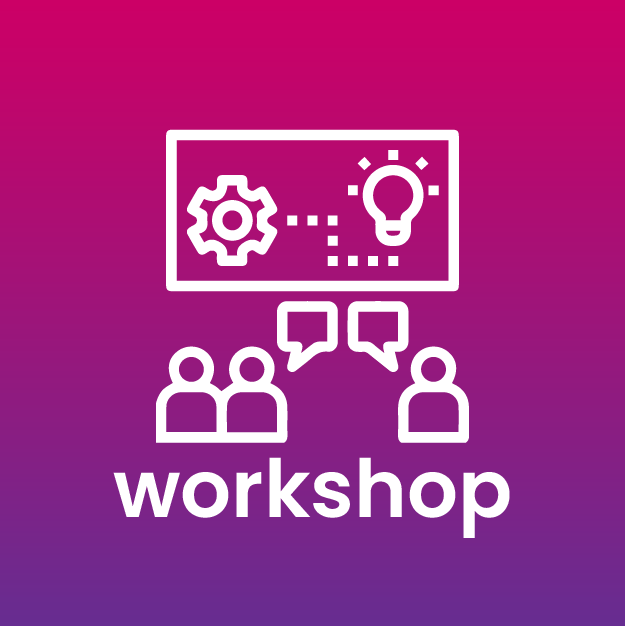Louise Selby
Morph Mastery: Making sense of words using morphology
English is confusing! Why don't we spell really as rearly, like dearly?! Morphology literally makes sense of words.
- English spelling involves morphology (prefixes, roots and suffixes) and phonics.
- A morphological approach to spelling can be transformational for dyslexics.
- Morph Mastery adopts this approach specifically for learners with dyslexia.
- Word play, investigation and multisensory learning is central.
- Come and play with the materials and find out more!
Morph Mastery is a morphological intervention for reading, spelling and vocabulary. Morphology, the system of language by which words are made up of units of meaning, literally makes sense of words. We use prefixes, roots and suffixes to build, investigate and transform words. Morph Mastery is multi-sensory, systematic and cumulative, designed for learners with dyslexic type difficulties and based on the English Curriculum. It uses assessment to plan learning precisely and can also be adapted for class and group work.
Morph Mastery has been extremely effective with learners who have become disengaged with intervention, and who have failed to make progress on phonics alone. While phonics is essential, learners with dyslexia often fail to progress if it is their only tool.
"I never expected such a clear, overt change. It's really helped my learner. He isn't floundering like he used to; he has another tool to help." (Teacher describing the impact)
In this workshop you'll gain some understanding of morphology and its importance in our spelling system. We'll have a go at some ways to use morphology and the Morph Mastery materials, e.g.:
reading and spelling games
word investigations
displaying and structuring words visually
Games for grammar and vocabulary
Room:
Jodie Grant
Putting Dyslexia in the Spotlight
Jodie wants to shine a light on dyslexia and how it can be best supported in the world of education.
Head of Learning Development, Jodie Grant wants to shine a light on dyslexia and how it can be best supported in the world of education. With a detailed look at Bredon School, located in the heart of Gloucestershire/Worcestershire, the opportunities it presents and the support it provides. Teaching dyslexic learners for since 1962 by identifying and building on their strengths whilst supporting their needs and removing barriers to their learning.
Room:
John Floyd
Executive function and navigating school life
Executive function and navigating school life; spotting difficulties and finding solutions. John will bring his expertise to the table.
Room:
Jennifer Willows
Bridging the Gap
How the Orcam Learn supports students and promotes independence and confidence whilst allowing educational professionals deliver high quality teaching in an inclusive education environment.
Room:
Kelly Challis
Balancing parenting and advocating for your child's needs.
This session will explore the home/school paradigm and how to nurture and support your child's education.
- Identifying your child's needs to support diagnosis or additonal support.
- Exploring the role you play as a parent
- Questions for schools to build a child centred profile
- Strategies for learning to support all subjects
This session will be split into four sections and will cover:
1. Your child, their history of needs, progress and well-being and how to communicate this with their school or outside professionals.
2. Getting the bigger picture from their education setting. What questions to ask and who should answer them.
3. Framing discussions with your child about their learning needs.
4. Different ways of working; learning strategies for the neurodivergent.
Room:
Alexandra Foster
Supporting positive self-identity and mental health in SEN.
Addressing the challenges that neurodiverse children can face around their sense of self, and how they can be supported.
- Neurodiversity and Anxiety
- How SpLD can impact mental health.
- Autism and self-identity
- Self-esteem and impact on relationships
- Research based approaches to support young people.
Room:
Hayley Mason-Seager
Navigating the SEN Maze
This covers parental entitlement in respect of EHCP's and the process of obtaining one to help support your child's needs.
- EHC Needs Assessment
- EHC Plans
- Special Educational Needs
- Special Educational Provision
- SEND Tribunal Appeals
Senior Solicitor and CEO Hayley Mason-Seager will be providing bitesize advice on the EHC Plan process. This talk is an invaluable opportunity to learn about the EHC Plan process, from the initial EHC Needs Assessment request, to Appealing decisions in the SEND Tribunal, by one of the countries most experienced and specialist solicitors. Join Hayley for some "myth busting" around the EHC Plan process, which will give you the tools to advocate for your child, or the children you support.
Room:
Hayley Mason-Seager
Navigating the SEN Maze
This covers parental entitlement in respect of EHCP's and the process of obtaining one to help support your child's needs.
- EHC Needs Assessment
- EHC Plans
- Special Educational Needs
- Special Educational Provision
- SEND Tribunal Appeals
Senior Solicitor and CEO Hayley Mason-Seager will be providing bitesize advice on the EHC Plan process. This talk is an invaluable opportunity to learn about the EHC Plan process, from the initial EHC Needs Assessment request, to Appealing decisions in the SEND Tribunal, by one of the countries most experienced and specialist solicitors. Join Hayley for some "myth busting" around the EHC Plan process, which will give you the tools to advocate for your child, or the children you support.
Room:
Liz Day
Dyslexia-friendly teaching
What is dyslexia-friendly teaching, and how does it affect students who aren't dyslexic?
- Dyslexia-friendly
- Quality teaching
- Multisensory
- Neurodiverse-friendly
- The Touch-type Read and Spell platform
Liz will explain why it is essential to teach in a dyslexia-friendly way, what this looks like and how it can be implemented more thoroughly throughout education settings.
Liz will explain some of the benefits, practical tips and include a short introduction to the Touch-Type Read and Spell (TTRS) platform as an example of a dyslexia-friendly resource.
Liz will draw on her own personal and professional experience, as well as evidence from recent research and projects.
Room:
Liz Day
How to support your delightfully dyslexic child
This presentation will guide parents in nurturing their dyslexic children, demonstrating Touch-type Read and Spell for literacy, typing, and confidence.
- Developing strategies
- Building independence
- Supportive parents
- Empowered children
- The Touch-type Read and Spell platform
During this presentation, parents will gain insights into supporting their delightfully dyslexic children at home. Focusing on fostering independence, Liz will offer practical tips for nurturing self-confidence and autonomy. There will also be a demonstration of the Touch-type Read and Spell (TTRS) learning platform, which Liz has used as a parent and a teacher.
TTRS is more than just a typing program; it's a comprehensive learning platform designed to bolster literacy skills, spelling, and overall confidence in dyslexic children. Through its innovative approach, TTRS enhances typing proficiency and also facilitates improved reading and spelling abilities. Liz will explain how the effective integration of this platform into daily routines can support children and young people to build strategies that will help them through education and into adulthood.
Liz's guidance will extend beyond the technical aspects of TTRS, encompassing broader strategies for creating an environment that nurtures the unique strengths of dyslexic children. By the end of the presentation, parents will have ideas of how to empower their children, encouraging a growth mindset.
Room:
Dr Helen Ross
USING ORCAM LEARN IN THE CLASSROOM
We summarise research about OrCam Learn's impact on reading outcomes and share practical ways to use OrCam Learn in school
Helen will share findings from a recent research project that she undertook to evaluate the impact on reading outcomes of using OrCam Learn. The project evaluated learners’ comprehension outcomes, and also their experience of using OrCam Learn, versus working with a Teaching Assistant to support their reading. Helen worked with students in 3 different schools, where they spent time talking about their experiences of reading in class, use of technology in learning and what support they have regular access to in their settings. Young people enjoyed using OrCam Learn and felt empowered by the independence that it fostered. Their reading comprehension gained reflected this. Overall the study found that using OrCam facilitated access to written passages and helped students to focus on content, rather than decoding.
This talk will be followed by a demonstration of OrCam Learn led by the UK OrCam Team

